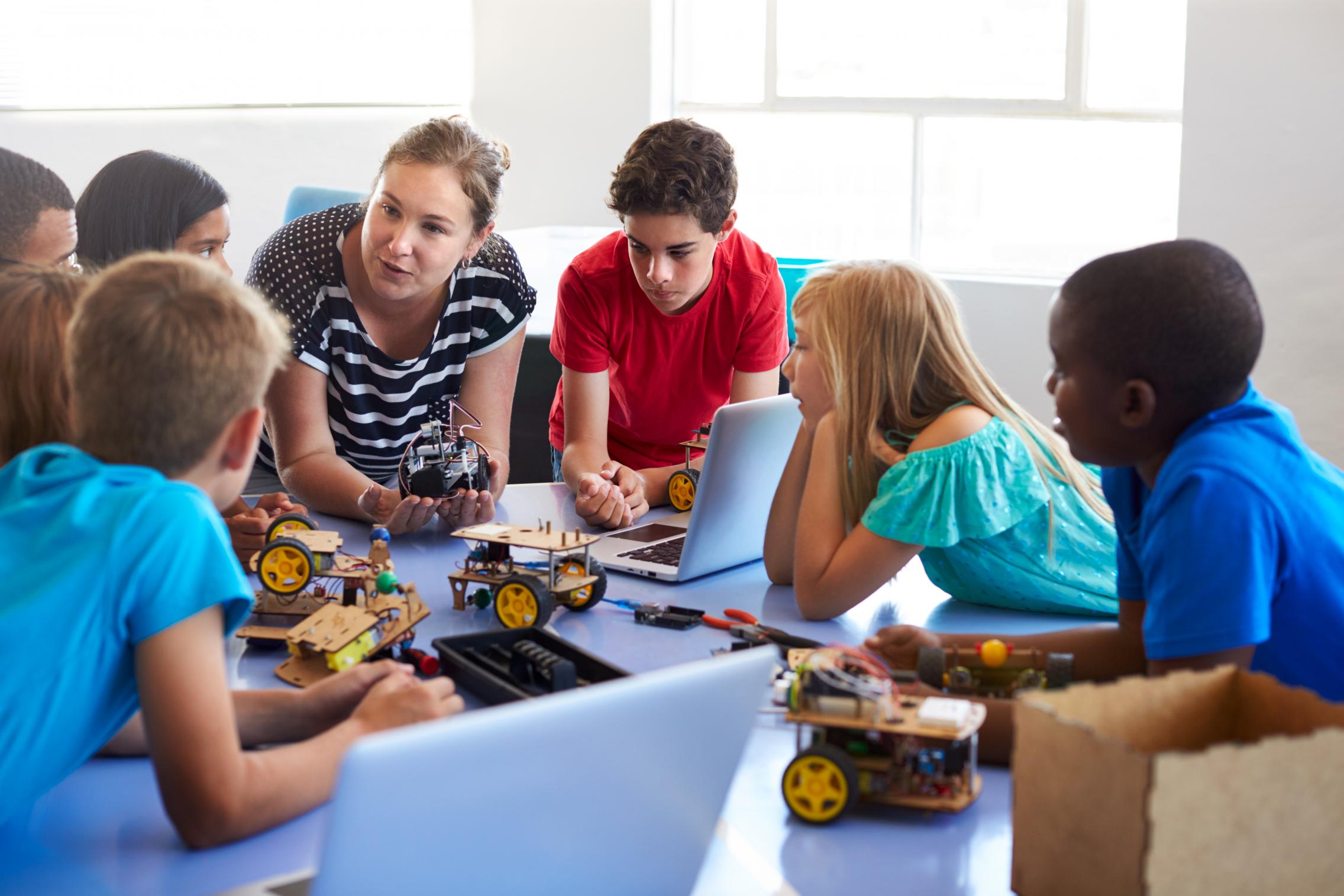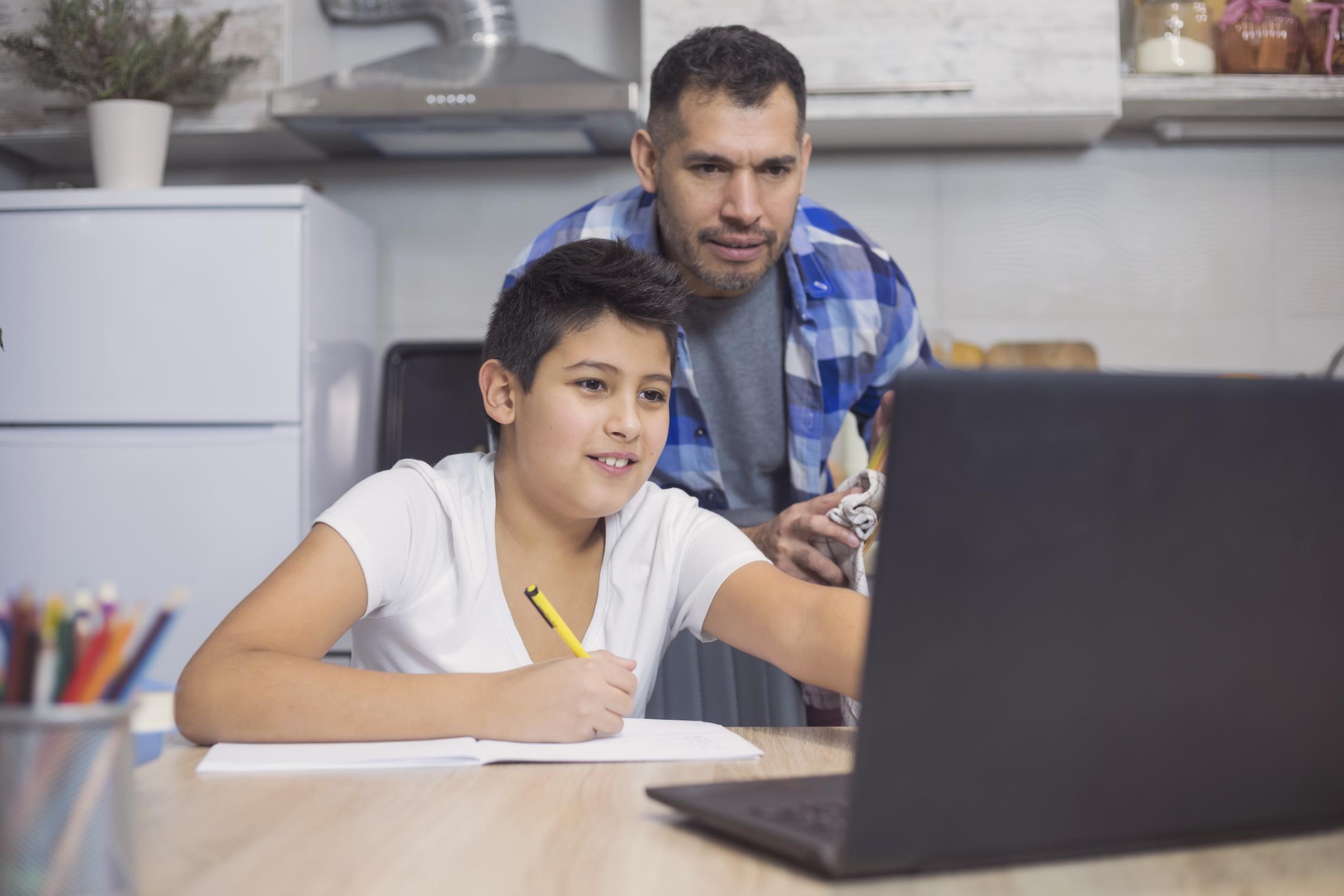Resources
There are many available resources to support you in learning more about Digital Technologies.
Here we have included information on some of the resources that we have created, as well as information on local clubs, associations and competitions that will be able to support you and your classroom.
-
CSER webinars and videos

We have a range of webinars and videos produced by the CSER team that can support on-demand professional learning for individuals and teams.
- CSER YouTube channel - Find curated playlists featuring CSER webinars, MOOC videos, real-world careers in Technology and more!
- CSER and Adelaide University Hour of Code Information Session
- Google Apps for Education and Coding in the Classroom webinar
- Education on Air: Creating assessment activities for Digital Technologies Curriculum with G Suite webinar
- Hey Google, How do I teach AI in the Classroom? Grow with Google webinar delivered by Dr Rebecca Vivian
- Dive into AI, VR and AR Digital Technologies Hub webinar delivered by Dr Rebecca Vivian and Martin Richards
For more resources visit the Digital Technologies Hub webinars page to view on-demand content! There you'll find a number of webinars by the CSER team (about Artificial Intelligence, Assessment, and more) along with many other fantastic sessions!
-
Resources for Teachers

We have a growing range of resources produced by the CSER team addressing introductory (plugged and unplugged) Digital Technologies learning, as well as supporting new and emerging areas of Technology, such as Artificial Intelligence, Cyber Security, Augmented Reality and Virtual Reality.
- Find our full list of lesson plans and project exemplars on our Lending Library page to freely download and use if you have the equipment available
- CSER's Get-Started Coding Guide - an introduction to some taster activities!
- CSER's Guide to Developing Maker Spaces - for those wanting to learn about how to set one up or how to create learning opportunities.
- Coding Across the Curriculum Resource Review & Report - features a list of curated resources.
- See our 'Resources to Support Parents and Families' below as many of these can be used in the classroom!
Be sure to check out our list of free, self-paced, Massively Open Online Courses (MOOCs) for teacher professional development.
-
Lesson Plans
The CSER STEM Professional Learning Team has developed a range of lesson plans, over time, as part of our national lending library program. You are welcome to download our lesson plans from our list below.
Please note, some equipment may have been discontinued since their creation, but the lesson idea could be applied in a new context.
Dash and Dot - F-2 Dash and Dot go to the Zoo
- F-2 Dash Mr Music
- F-2 Speedy Dash
- 3-4 Dashport Obstacles
- 3-4 Hide and Seek with Dash
BeeBot Bluebot Sphero Ozobot Makey Makey Micro:bits LilyPad and Arduino LittleBits and Arduino LittleBits and Makey Makey Augmenting Reality Human Body - 5-10 Augmented Reality Timelapse Artwork with Artivive
- 5-9 (can adapt for Yr 5+) Human Anatomy with Virtuali-tee
- Yr 9+ Creating a Biology AR poster using Unity
Augmented Reality in Space Oculus Quest VR Lenovo Daydream VR 9-10 Project Case Studies Merge Cube Kit - 5-6 Merge Cube Magic
- 5-6 Lost in Space
- 5-6 Journey to the Centre of the Earth
- 5-6 What's Inside my Body!
- 5-6 What's that Matter!
- 6-7 Food Web Ecosystem
- 6-8 Plant Magic
- 6-8 Raindrops
- 6-8 Rocky Roads
Artificial Intelligence (AI) -
Artificial Intelligence Resources for Leadership & Facilitators

AI and Emerging Technologies (AR, VR) Resources
- AI and Emerging Technologies Quick Guide
- AI, AR, VR Classroom Usage Guide
- AR Activity Ideas Handout
- AI Activity Ideas Handout
-
Resources to Support Parents and Families

Many of our resources are suitable for use at home to support parents with student learning particularly during COVID, but they could also be a fun school holiday activity!
We have a range of resources that use low cost or no cost resources. There are also options for unplugged learning, meaning learning without using expensive equipment or technology!
Is Digital Tech Just about Robots? Firstly, what are digital technologies? This one page resource explains the fundamentals of Digital Technologies and why it is so important for all students to learn about it.
CSER Digital Technologies Alphabet Book (Foundation to Year 6). Want to understand the ABCs of Digital Technologies? This book, developed by the CSER Team, covers a comprehensive range of terms, concepts, definitions and ideas that are regularly discussed in CSER workshops. View an online book version here or download a PDF here.
Videoconferencing like a pro! - Are you helping your child navigate video conferencing for remote learning? This resource may help, it contains some simple but important tips to think about when participating in remote learning via video.
Activities for Home
Computational Thinking at Home Challenge - it sounds more complicated than it is! Using toys such as Lego (R) you can play with the idea of an algorithm - which is the computer science way of referring to a set of instructions!
Design Thinking at Home Challenge - this booklet helps you find a solution to a problem using design thinking process. In this case the challenge is to make something that can transport an injured toy around the house, using simple household items.
CSER's 30 Digital Technologies Challenge - this one page grid provides 30 days of simple challenges using Digital Technologies concepts without the need for a device (eg phone or tablet) although you can incorporate them if you want! Lots of fun ideas to keep your young person engaged.
CSER's 30 Day Scratch Challenge - Scratch is a free online tool that enables students to create stories, games and animations. This 30 day challenge will encourage your child/student to explore many different features of Scratch to help them use their creativity and problem solving.
CSER's 30 Day Scratch Jr Challenge - This resource is aimed at younger students and like the Scratch Challenge, the Scratch Jr Challenge encourages students to create a story in the app, including using animations and sound effects.
CSER's 16 Days of AR (Augmented Reality) - this resource does require a phone or ipad that can download a range of free Augmented Reality apps. It provides a range of fun and engaging activities exploring AR, including bringing a playdough design to life with 'Playdough Touch' and exploring the stars and constellations with 'SkyView App'.
CSER's 16 Days of Binary Challenge - binary is a numeric system that only uses two numbers - 0 and 1. Computers use binary so it is an important part of digital technologies learning.
Hour of Code
Hour of Code is an annual event that encourages students to have a go at coding or computational thinking in bite size activities. We have created a series of plugged and unplugged Hour of Code activities that you can try at home or in the classroom.
Unplugged Hour of Code activities:
Challenge 1: Lego Building, 30-60 minutes for Primary aged students
Plugged Hour of Code Activities:
Challenge 1: Micro:Bit Simulator, 30-60 minutes for Primary aged students
CSER digital technologies mission
